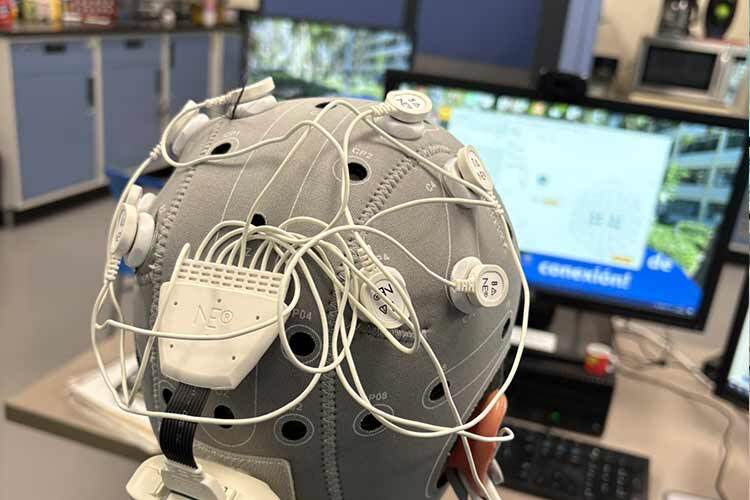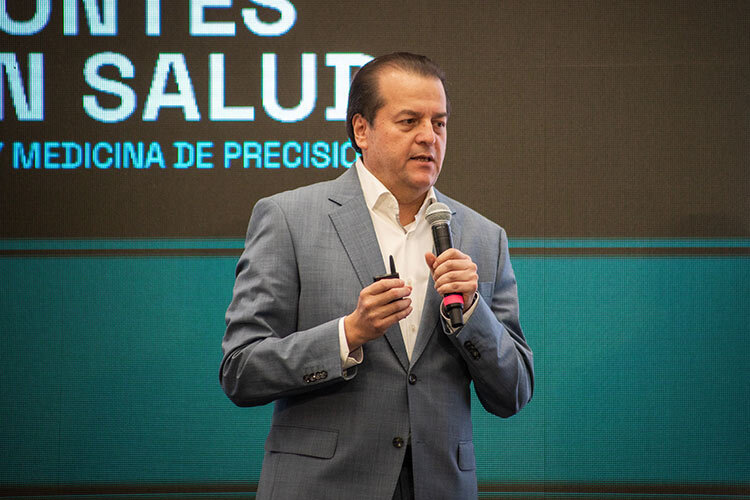Childhood trauma during our early years could stay with us for the rest of our lives. There is increasing scientific evidence that adverse experiences in early childhood have a profound impact on our physical and mental health.
Internationally, it has been observed that toxic stress and trauma (suffering from or witnessing violence, as well as living in dysfunctional homes) are associated with an increase in psychiatric illnesses such as anxiety and depression, as well as cancer, cardiovascular disease, arthritis, and autoimmune problems.
Different studies have found that children who are exposed to adverse experiences have an increase in the inflammatory response in the presence of hormones associated with stress, such as cortisol, and alterations in the microbiota, among other aspects.
These changes in specific molecules could act as biomarkers that help doctors detect these consequences and propose new treatments and interventions when necessary.
For researchers Julieta Rodríguez de Ita and Fabiola Castorena at Tec de Monterrey, reducing adverse experiences in early childhood is key to human development and healthy societies.
However, research on the subject is scarce in Mexico and Latin America, so they founded the Developmental Biology and Childhood Wellbeing research group at the Tec.
“What motivates us is doing research that leads to a real change in society,” says Rodríguez de Ita in an interview with TecScience.
Adverse Childhood Experiences
Currently, at least ten categories of adverse childhood experiences are recognized.
- Child physical abuse. When children are beaten or physically punished to varying degrees of intensity.
- Child sexual abuse.
- Child emotional abuse. When children are insulted, humiliated, or manipulated.
- Physical neglect. When children are not provided with a healthy diet and proper mealtimes, nor are aspects such as hygiene and cleanliness ensured.
- Emotional neglect. When caregivers do not provide support and contention for different levels of stress.
- Living with a person with a mental illness or suicidal thoughts.
- Having a family member with a drug or alcohol addiction.
- Witnessing domestic violence.
- Loss of a parent or abandonment due to parental divorce.
- Incarceration of a family member.
According to the University of Manchester, disease generally emerges when people have had four or more adverse experiences in their lives.
A response known as toxic stress can occur when constant stress affects a child, in which stress response systems are activated -for a prolonged time- that can interrupt the development of brain architecture, increase stress-related diseases and lead to cognitive decline.
Children exposed to these levels of adversity can also present learning and behavioral problems, such as an increase in violence against others, including bullying, as well as a reduction in life expectancy of up to 10 years.
An Ambitious Multidisciplinary Group
Wide-ranging studies have already examined the impact of abused children in the United States, Europe, Canada, and Japan. Efforts in Mexico and Latin America are still limited, with few groups devoted exclusively to the subject.
That is why Julieta Rodríguez de Ita, a pediatrician and researcher at TecSalud’s San José Hospital, and Fabiola Castorena Torres, a research professor at the School of Medicine and Health Sciences, decided to put together a multidisciplinary group to start breaking down the problem and finding out how to tackle it.
The group includes pediatricians, psychiatrists, psychologists, and nutritionists, but also aims to include members from other areas such as education, public policy, neuroscience, and more.
“We invite those researchers who want to join this group to get in contact with us,” says Rodriguez de Ita.
One of their first goals is to conduct a national census to find out how many adverse experiences Mexicans have had in their childhood in order to relate this to their current state of health. A subpopulation of children between three and five years old will be considered in order to understand how childhood is experienced in the country nowadays.
In addition, they intend to conduct clinical research to find biomarkers associated with stress caused by adverse experiences, which will allow physicians and pediatricians to evaluate their patients as thoroughly as possible.
The Impact of Stress on Childhood
The group has also partnered with Centro Cuida at the Pontifical Catholic University of Chile and Centro Imagina at the University of Los Andes, Colombia, to exchange information on adverse experiences in early childhood in Latin America.
According to researchers and scientists worldwide, the societal impact of childhood distress is enormous. It is believed that these experiences form adults who can’t adapt easily to society and often perpetuate cycles of violence that are difficult to break.
In 2017, a study in the United Kingdom followed the lives of people who had lived in deprived conditions in a government orphanage. It was reported that those who had been adopted before the age of six months and had lived with families that provided them with appropriate care showed good development throughout their lives.
However, according to the results of the study, published in an article entitled Child-to-adult neurodevelopmental and mental health trajectories after early life deprivation, those who were adopted after six months of age showed increased symptoms of autism spectrum disorder, hyperactivity, and learning difficulties.
“The lesson to be learned here is that if you act in time and reduce adverse experiences and exchange them for positive ones, these children can become successful adults,” explains Castorena Torres.
Parenting, a Public Health Issue
The group of experts also proposes to complement their research on children with studies on the psychological and physical condition of their parents, doctors, and teachers regarding adverse experiences.
“If there are problems in children’s environments, they are likely to develop problems,” explains Rodriguez de Ita.
In the future, both researchers believe that the adversity and well-being of children will become increasingly relevant and hope to be able to collaborate with the authorities to develop public policies.


















